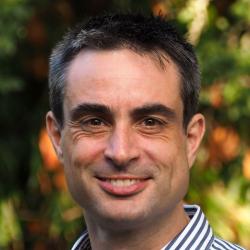Hamish is interested in pollination and plant-pollinator interactions - how flowers have evolved alongside insects, and how crop breeding has changed pollinator-relevant traits. Most recently he has investigated the basis of nectar spurs in the toadflax genus Linaria. Nectar spurs are considered a key evolutionary innovation, enabling rapid speciation by defining pollinator specificity. Linaria features a spur, but the genetic basis of its formation is still unclear, particularly the genes which control spur positioning and length.
His PhD, also in the Glover lab, investigated these using the garden strawberry as a model system, characterising the floral variation between cultivars of strawberry and testing bumblebee responses to extremes of that variation. Alongside this, he investigated the molecular basis of flower colour Aethionema, a genus in the Brassicaceae with cultivars having flowers ranging from light to deep pink.
He is deeply interested in undergraduate teaching, and has lectured and supervised first-year undergraduates and taught on first- and second-year field trips. He is also a
Fellow of the Higher Education Academy.
Hamish is Head of Academic Skills at
Downing College, Cambridge, where he helps students learn how to learn in the context of university. This has limited the amount of time he can devote to research, but he's still affiliated to the Glover Lab. Between October 2022 and July 2025 he was a Junior Research Fellow at
Queens' College, Cambridge, before which he studied for a PhD on the BBSRC Doctoral Training Programme (DTP). After an undergraduate degree in Biochemistry at Cambridge, graduating in 2002, Hamish worked variously for the University and University Press in various aspects of IT and graphic design. In 2008 he founded a software company designing business systems for photographers. Upon selling his share in the company in 2016, he returned to science on the BBSRC DTP scheme, starting his PhD in October 2017. He is always willing to talk about life as a mature PhD student (and managing a PhD and a toddler!) with anyone interested in applying.

